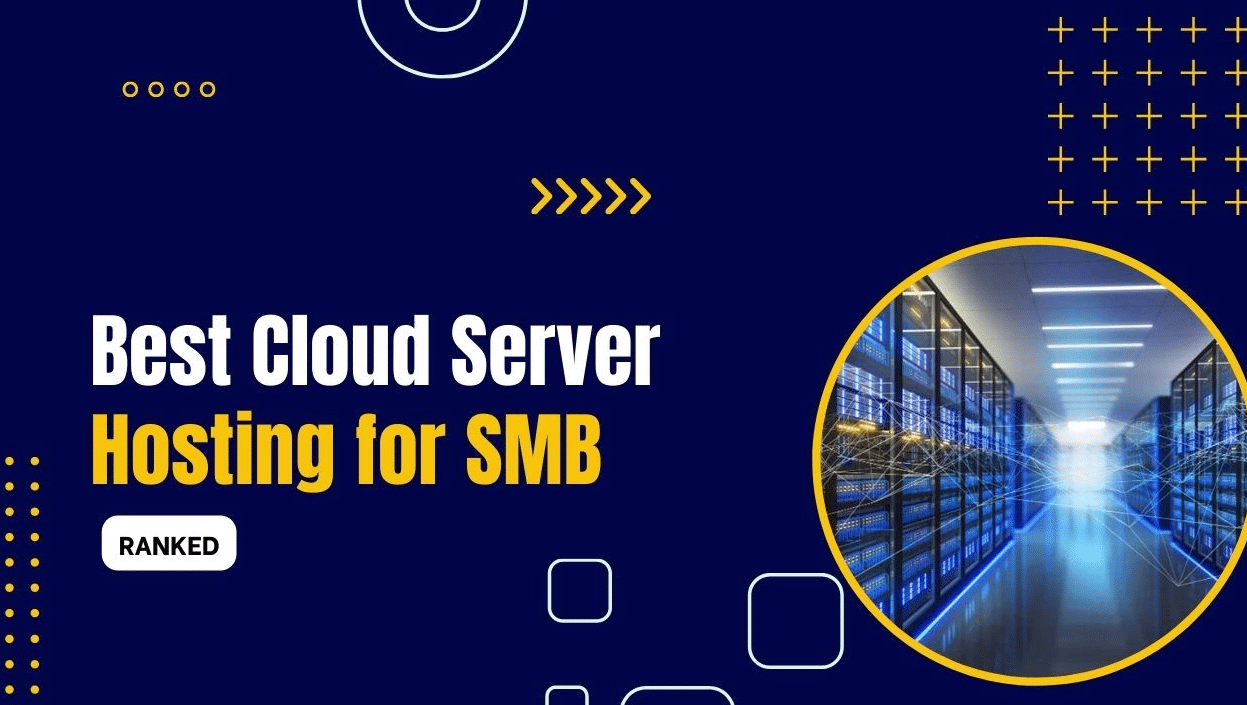Best Cloud Server – As businesses rapidly embrace digital transformation, the demand for reliable, secure, and scalable computing infrastructure has never been higher. Cloud servers have emerged as a cornerstone of modern IT strategies, offering dynamic computing resources without the need for physical hardware. However, with a multitude of providers in the market, a common question arises: What is the best cloud server?
The answer isn’t as straightforward as naming a single provider. The best cloud server depends on your specific needs, including performance, scalability, pricing, security, global reach, and customer support. In this article, we’ll explore the top cloud server providers, compare their offerings, and guide you toward choosing the ideal cloud solution for your personal or business goals.

What is a Cloud Server?
A cloud server is a virtual server that operates in a cloud computing environment. It provides processing power, storage, and networking capabilities remotely over the internet, allowing users to deploy applications, store data, and run workloads on-demand.
Cloud servers eliminate the need for on-premises infrastructure and are used across a range of industries for:
-
Hosting websites and applications
-
Running databases and analytics workloads
-
Supporting software development
-
Deploying AI and machine learning models
-
Managing large-scale enterprise systems
Cloud servers are typically scalable, highly available, and pay-as-you-go, making them more flexible and cost-effective than traditional physical servers.
Criteria for Choosing the Best Cloud Server
Before jumping into the top contenders, let’s define what makes a cloud server “the best.” Key evaluation criteria include:
-
Performance: CPU speed, memory, IOPS, and network throughput.
-
Scalability: Ability to handle increased demand automatically.
-
Global Reach: Number of data centers and geographic distribution.
-
Security & Compliance: Encryption, firewalls, identity management, and certifications.
-
Pricing & Billing Models: Transparent, flexible, and cost-effective pricing.
-
Support & Ease of Use: Availability of documentation, technical support, and intuitive UI.
-
Ecosystem & Services: Integration with databases, AI, storage, containers, and DevOps tools.
Top 6 Best Cloud Server Providers in 2025
1. Amazon Web Services (AWS)
Overview: AWS is the undisputed leader in cloud computing, offering over 200 services including its flagship EC2 (Elastic Compute Cloud) servers.
Strengths:
-
Massive global infrastructure (100+ Availability Zones)
-
Wide variety of instance types (general, compute-optimized, GPU, etc.)
-
Seamless integration with other AWS services
-
Proven reliability and security
Best For: Enterprises, AI/ML workloads, big data analytics, global applications
Pricing:
-
Pay-as-you-go, Reserved, Spot, and Savings Plans
-
Free tier: 750 hours/month of t2.micro for 12 months
2. Microsoft Azure
Overview: Azure is a robust cloud platform deeply integrated with Microsoft products. Azure Virtual Machines (VMs) support both Windows and Linux.
Strengths:
-
Excellent for hybrid cloud environments
-
Tight integration with Microsoft 365, Active Directory, and SQL Server
-
Wide global presence and compliance certifications
-
Supports AI, DevOps, and IoT out of the box
Best For: Businesses using Microsoft products, hybrid deployments, enterprise IT
Pricing:
-
Pay-as-you-go, reserved, and spot pricing
-
Free tier includes 750 hours/month of B1S VM for 12 months
3. Google Cloud Platform (GCP)
Overview: Known for innovation and efficiency, GCP offers Compute Engine for cloud servers, with auto-scaling and custom VM configurations.
Strengths:
-
Competitive pricing and sustained use discounts
-
Powerful data analytics and AI services
-
High-performance networking and live migration
-
Industry-leading sustainability
Best For: Developers, startups, data science, and AI workloads
Pricing:
-
Free tier: f1-micro VM with 30GB HDD
-
$300 credit for 90 days for new users
4. IBM Cloud
Overview: IBM Cloud offers highly customizable cloud servers with an emphasis on security, AI (Watson), and enterprise services.
Strengths:
-
Bare metal and virtual server options
-
Strong focus on regulated industries
-
Powerful AI capabilities with IBM Watson
-
Kubernetes and Red Hat OpenShift integration
Best For: Enterprises, regulated industries (finance, healthcare), AI research
Pricing:
-
Lite plans available for testing
-
Pay-as-you-go and subscription models
5. Oracle Cloud Infrastructure (OCI)
Overview: Oracle Cloud has rapidly gained traction, offering powerful performance at competitive pricing—especially for Oracle software users.
Strengths:
-
Generous always-free tier (2 Arm-based VMs, block storage, etc.)
-
High IOPS and bandwidth
-
Optimized for Oracle workloads
-
Lower-cost compute options than many competitors
Best For: Businesses running Oracle apps, performance-focused users
Pricing:
-
Always Free Tier + Pay-as-you-go
-
Transparent and straightforward pricing
6. DigitalOcean
Overview: DigitalOcean focuses on simplicity and developer-friendliness, offering cloud servers (droplets) that are easy to set up and manage.
Strengths:
-
Developer-centric with simple UI
-
Flat-rate pricing with predictable billing
-
Ideal for small to medium-sized apps
-
Great documentation and tutorials
Best For: Developers, startups, small businesses, personal projects
Pricing:
-
Plans start as low as $4/month
-
Free $200 credit for new users (valid for 60 days)
Comparing the Best Cloud Servers
| Provider | Performance | Ease of Use | Price Range | Global Coverage | Best For |
|---|---|---|---|---|---|
| AWS | ★★★★★ | ★★★★☆ | $$ – $$$$ | Global | Enterprises, complex systems |
| Azure | ★★★★★ | ★★★★☆ | $$ – $$$ | Global | Microsoft ecosystems |
| GCP | ★★★★☆ | ★★★★☆ | $$ – $$$ | Moderate | AI, data science |
| IBM Cloud | ★★★★☆ | ★★★☆☆ | $$$ | Limited | Regulated industries |
| Oracle Cloud | ★★★★☆ | ★★★★☆ | $ – $$ | Moderate | Oracle software users |
| DigitalOcean | ★★★☆☆ | ★★★★★ | $ – $$ | Regional | Devs, startups |
Specialized Use Cases
-
Best for AI/ML: Google Cloud & AWS
-
Best for DevOps & CI/CD: DigitalOcean, AWS
-
Best for Enterprises: AWS, Azure, IBM Cloud
-
Best for Budget Users: Oracle Cloud, DigitalOcean
-
Best for Hybrid Cloud: Microsoft Azure
-
Best for Sustainability: Google Cloud (carbon-neutral)
Security and Compliance
All top providers offer strong security, including:
-
Data encryption at rest and in transit
-
Firewalls and DDoS protection
-
Role-based access control (RBAC)
-
Regular audits and compliance with GDPR, HIPAA, SOC 2, ISO/IEC 27001, and more
AWS and Azure tend to lead in compliance certifications, while Oracle and IBM focus on industry-specific security needs.
Cost Management Tips
To avoid overspending:
-
Use free tiers for development/testing
-
Set up billing alerts
-
Leverage spot instances or savings plans
-
Automatically shut down unused servers
-
Monitor usage with built-in analytics tools
How to Choose the Best Cloud Server for You
-
Define Your Requirements
-
What are your workloads? Web hosting, big data, development, gaming?
-
How much performance do you need?
-
Do you need global accessibility or local hosting?
-
-
Consider the Budget
-
Start with free or low-cost plans.
-
Compare pricing models and billing transparency.
-
-
Evaluate the Ecosystem
-
Are you using tools like Kubernetes, Docker, or .NET?
-
Check integration capabilities with third-party apps and APIs.
-
-
Test and Experiment
-
Take advantage of free trials and credits.
-
Deploy test applications and monitor performance.
-
Conclusion
The “best” cloud server depends not on one-size-fits-all metrics but on your unique goals, budget, and technical needs. Whether you’re a large enterprise requiring massive compute power or a solo developer building your first app, the modern cloud landscape offers a solution for everyone.
-
Choose AWS or Azure for enterprise-grade reliability and feature-rich ecosystems.
-
Go with GCP for innovation in AI and data processing.
-
Consider Oracle Cloud for high performance on a budget.
-
Use DigitalOcean for simplicity and developer focus.
In the evolving world of cloud computing, staying informed and adaptable is key. Choose wisely, monitor usage, and scale responsibly—and the cloud will empower your next big breakthrough.

